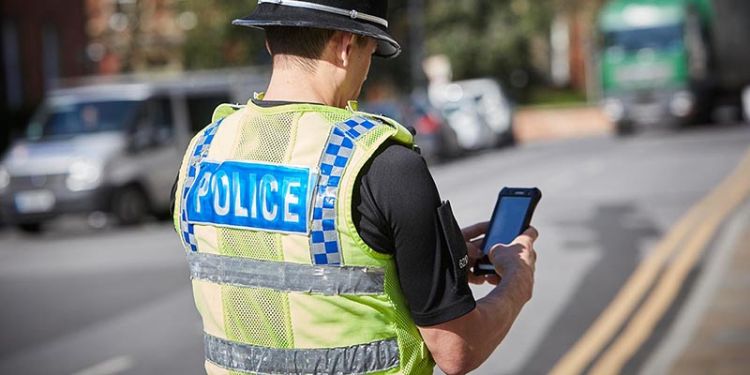Collaborative policing research at Leeds

Funded by the N8 Policing Research Partnership, the School of Law and Leeds University Business School have joined forces to drive research into emerging digital technologies in the police sector.
In an example of collaborative research, two doctoral researchers, jointly supervised by the School of Law and Leeds University Business School and funded by the N8 Policing Research Partnership (N8 PRP), have completed their PhD studies on emerging digital technologies in the policing sector.
Building research capacity
The N8 PRP is a large-scale, academic-police collaboration between eight research-intensive universities and 12 police forces in the North of England which work together to champion, enable, and support policing research and its impact.
The N8 PRP has funded and supported several PhD studentships, all of which have been successful collaborations with police partners. By investing in these PhD studentships, the N8 PRP has helped to strengthen the evidence base of police policy, practice and training, supporting innovations that better serve communities.
Digital technologies and the police
Recently, police forces have invested significantly in digital technologies such as Body-Worn Video (BWV) and Mobile data systems. However, the impact and effectiveness of these digital devices on operational policing has lacked an evidence base.
Both PhD studies sought to identify lessons for the roll-out of good practice by exploring police use of emerging digital technologies ie body-worn cameras and digital mobile technologies – and both were collaborative ventures with West Yorkshire Police.
A strong record of working with external partners
These latest PhD studies are example of how social science research at the University of Leeds is informing the future direction of policing. The studies also demonstrate the University’s commitment to increasing research impact by forging new pathways to engagement with external partners.
University of Leeds postgraduate researcher Declan Falconer’s thesis explored the impact of BWV on how policing is delivered and experienced. Declan’s research interrogated the contexts in which BWV is used by police, how it effects the decision-making and conduct both of police officers and those citizens being recorded (or who perceive they may be being recorded) within encounters.
Daniel Pugh’s thesis on the Evaluation of mobile systems and mobile analytics explored the mechanisms by which police are evaluating mobile systems and the measures and data sources that they are using, which will allow for the development of more effective approaches to the evaluation of these devices.
Cross-faculty collaboration
In an example of strong cross-faculty collaboration, both Daniel and Declan were supervised by Professor Stuart Lister from the School of Law and Professor David Allen from LUBS.
Both projects are examples of true cross-faculty collaboration, enabling both researchers to develop interdisciplinary approaches to their studies whilst working with West Yorkshire Police to understand the far-reaching implications for policing of new digital technologies.
Training the next generation of researchers
Both researchers have progressed to work in research and policy positions at policing and governmental institutions. This is an example of how the University of Leeds aims to equip the next generation of researchers with the skills necessary to understand the complex problems faced by the policing sector. This will enable them to contribute to the development of practice and policy solutions to the societal problems faced by the UK in the coming years.
Leeds University Business School and the Faculty of Social Sciences are committed to supporting research with impact. At Leeds we value partnerships that take research beyond the University to improve understanding in publicly owned sectors such as the police.
Further information
For any media enquiries, please contact Sally Annett, the Faculty Communications Manager for Social Sciences, via s.annett@leeds.ac.uk.




